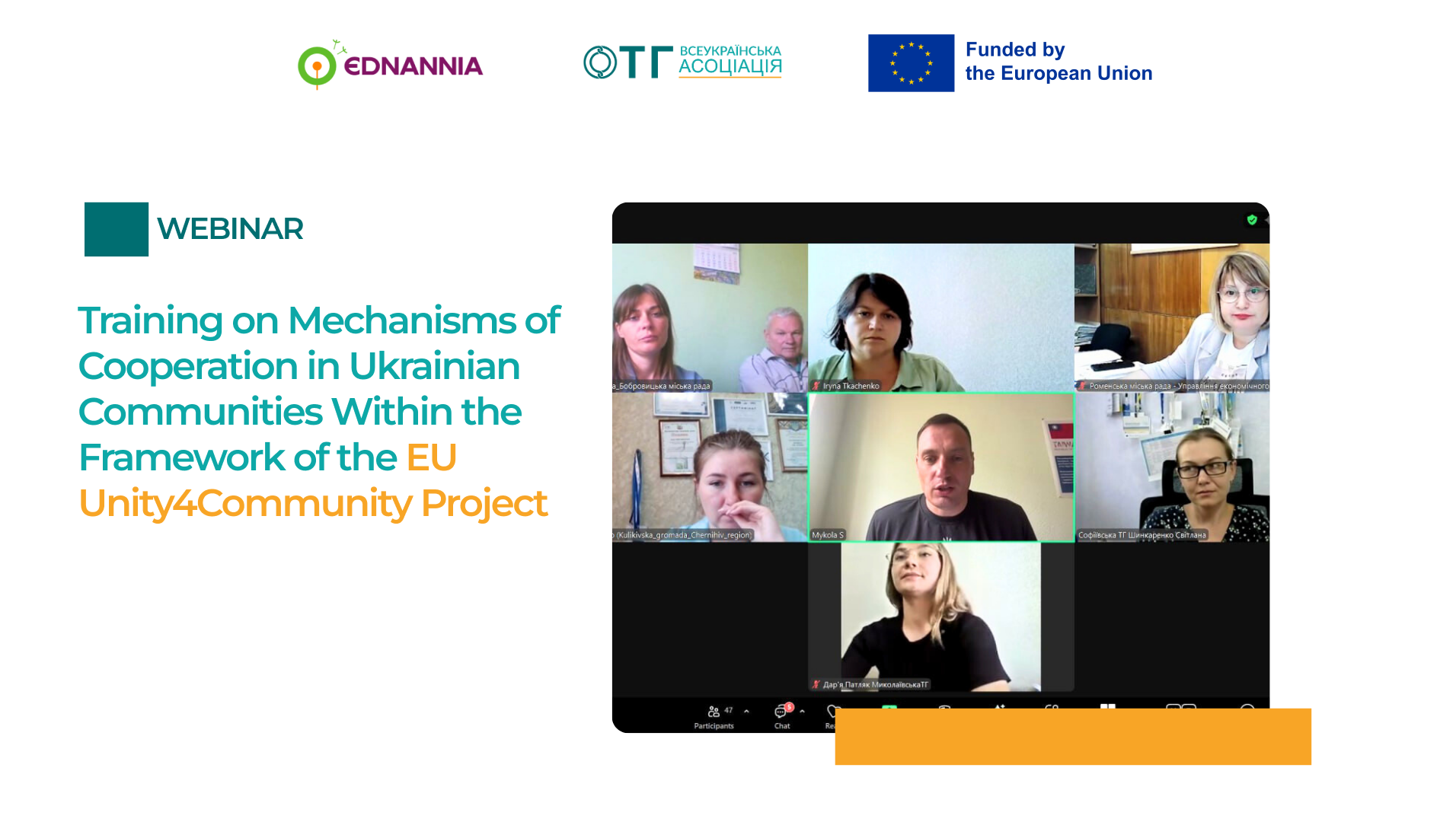
A partnership between authorities and the public may be a mere formality, or it may become a driving force for change. How can communities avoid the trap of imitation and move toward genuine collaboration? This was the focus of the training on Mechanisms of Cooperation in Ukrainian Communities, organized by the All-Ukrainian Association of Amalgamated Territorial Communities within the framework of the EU Unity4Community Project, implemented by ISAR Ednannia funded by the European Union.
This was the second training session during which representatives of 30 participating communities working in teams that include both local authorities (OMC) and civil society organizations (CSOs) discussed how interaction between local self-government bodies and civil society has changed since 2022, and why challenges such as lack of transparency or competition for influence have taken on new forms.
The teams attempted to assess the level of trust in their communities using a five-point scale and to give an honest answer: to what extent do communities, local authorities (OMC), and civil society organizations (CSOs) truly work together, and where is partnership merely being imitated?
Participants discussed how various participation tools function in practice, such as electronic petitions, participatory budgeting, public hearings, open budgets, and engagement platforms, and under what conditions these tools can become truly effective. They also emphasized that it is important not only to create opportunities to be heard but also to ensure a response, follow-up, and meaningful change.
During the discussion, the teams shared examples of effective cooperation between authorities and the civil society sector and filled out the Partnership Map − a tool for honestly assessing the situation, identifying allies, and planning concrete actions.
The training also included announcements of further opportunities for participants. Starting in July, a support hotline will be launched − a tool designed to provide answers to practical questions about partnerships between local authorities (OMC) and civil society organizations (CSOs). In addition, a series of applied webinars on project management will be held, focusing on European requirements and standards.
The project also foresees learning visits: 24 of the most active participants will take part in study trips across Ukraine, and around 12 will join an international study visit.
